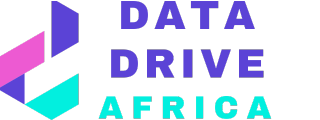Today we have the pleasure of interviewing James Mutinda, a talented data scientist with a passion for exploring data and extracting insights. James currently works as a Data Scientist at an NGO in Nairobi.
Q1: Can you introduce yourself and tell us about your current role in the data field?
James: Thank you for having me! I’m James Mutinda, and I’m currently working as a Data Scientist at an NGO in Nairobi. My role involves working with large datasets to identify patterns, build predictive models, and provide data-driven recommendations to various stakeholders.
Q2: How did you get started in the data field, and what motivated you to pursue this career path?
James: My interest in data science started during my undergraduate studies in Computer Science. I was fascinated by the potential of data to solve complex problems and improve decision-making processes. During my studies, I took some data science courses and began working on personal projects that further fueled my passion for the field.
Q3: Did you study a data-related field in university, or are you self-taught? How did your educational background influence your journey?
James: I pursued a Bachelor’s degree in Computer Science, which provided a solid foundation for my data science journey. However, I must admit that I’m largely self-taught when it comes to advanced data science concepts. I took online courses, and participated in data science competitions to enhance my skills.
Q4: Can you walk us through your career journey, from your first data-related job to your current position?
James: After graduating, I landed my first job as a Data Analyst at a small micro lender in the UK. This was a remoter job and did not pay that much but was still good. It was an excellent learning experience, as I got hands-on experience with data cleaning, visualization, and basic analysis. Over time, I transitioned to a Data Scientist role at a mid-sized company, where I started working on more complex projects involving machine learning. Now, as a Senior Data Scientist, I lead a team and tackle challenging projects that have a significant impact on our organization.
Q5: What were the key milestones or turning points in your career that helped you progress?
James: One of the key milestones in my career was when I was part of a team that won a data visualization competition. It gave me the confidence to take on more ambitious projects and helped me build a strong network in the data community. Additionally, obtaining certifications in specialized areas like deep learning and natural language processing opened up new opportunities for growth.
Q6: What are the primary technical skills and programming languages you use regularly in your work?
James: Python is my go-to programming language for data science tasks. I use libraries like NumPy, Pandas, and Scikit-learn extensively. Additionally, I’m well-versed in SQL for querying databases and R for specific statistical analyses when needed.
Q7: Could you share some of the most interesting data projects you’ve worked on and the impact they had?
James: One of the most interesting projects I worked on was implementing a predictive maintenance system for a manufacturing client. By analyzing sensor data from their machines, we were able to detect potential failures in advance, saving them substantial maintenance costs and minimizing downtime.
Q8: How do you stay updated with the latest trends and advancements in the data field?
James: Continuous learning is crucial in this field. I regularly follow research papers, attend data science conferences, and engage with online communities. Joining data science forums and participating in hackathons also keeps me updated with the latest tools and techniques.
Q9: How do you address ethical challenges related to data privacy, bias, and fairness in your work?
James: Ethical considerations are vital in data science. We always anonymize and handle sensitive data with utmost care. To address bias, we carefully examine the data sources and take measures to mitigate any potential unfairness in our models. Regular audits and open discussions within the team help us ensure ethical practices.
Q10: Where do you see the data field heading in the next few years, and what skills will be most important for professionals to thrive?
James: The data field is evolving rapidly, and I believe we’ll see even more integration of AI and machine learning in various industries. Data professionals should focus on enhancing their understanding of deep learning, as well as ethical AI practices. Additionally, soft skills like effective communication and storytelling will be crucial to convey complex data insights to non-technical stakeholders.
Subscribe to our email newsletter to get the latest posts delivered right to your email.


